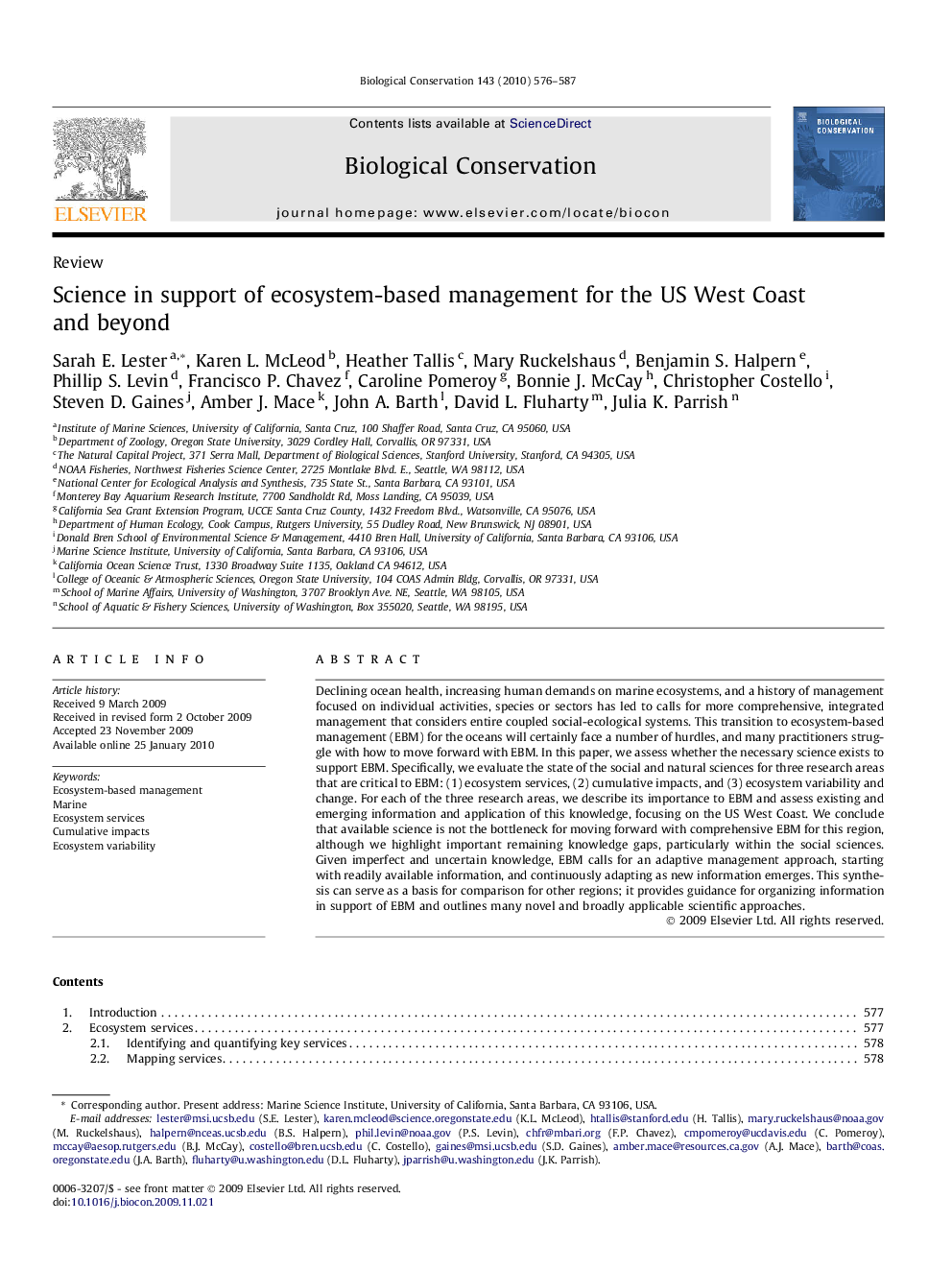| Article ID | Journal | Published Year | Pages | File Type |
|---|---|---|---|---|
| 4386106 | Biological Conservation | 2010 | 12 Pages |
Abstract
Declining ocean health, increasing human demands on marine ecosystems, and a history of management focused on individual activities, species or sectors has led to calls for more comprehensive, integrated management that considers entire coupled social-ecological systems. This transition to ecosystem-based management (EBM) for the oceans will certainly face a number of hurdles, and many practitioners struggle with how to move forward with EBM. In this paper, we assess whether the necessary science exists to support EBM. Specifically, we evaluate the state of the social and natural sciences for three research areas that are critical to EBM: (1) ecosystem services, (2) cumulative impacts, and (3) ecosystem variability and change. For each of the three research areas, we describe its importance to EBM and assess existing and emerging information and application of this knowledge, focusing on the US West Coast. We conclude that available science is not the bottleneck for moving forward with comprehensive EBM for this region, although we highlight important remaining knowledge gaps, particularly within the social sciences. Given imperfect and uncertain knowledge, EBM calls for an adaptive management approach, starting with readily available information, and continuously adapting as new information emerges. This synthesis can serve as a basis for comparison for other regions; it provides guidance for organizing information in support of EBM and outlines many novel and broadly applicable scientific approaches.
Related Topics
Life Sciences
Agricultural and Biological Sciences
Ecology, Evolution, Behavior and Systematics
Authors
Sarah E. Lester, Karen L. McLeod, Heather Tallis, Mary Ruckelshaus, Benjamin S. Halpern, Phillip S. Levin, Francisco P. Chavez, Caroline Pomeroy, Bonnie J. McCay, Christopher Costello, Steven D. Gaines, Amber J. Mace, John A. Barth, David L. Fluharty,
